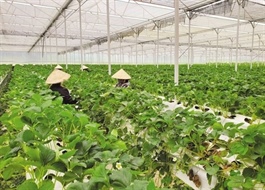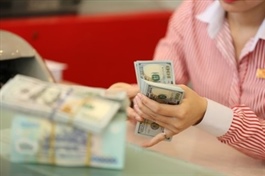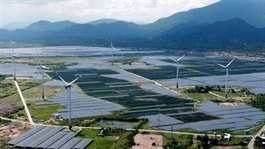Vietnam should learn from international experience before raising beverage tax
Vietnam should learn from international experience before raising beverage tax
Vietnam has been urged to learn from other countries to prevent a shock to businesses and ensure a balance of interests before it raises taxes on alcohol.

At recent forums on the proposed tax hike, delegates, policymakers, experts, and the business community said that now is the time for a tax cut to support businesses, rather than making a hike.
More consideration
At a seminar to discuss the draft Law on the Special Consumption Tax (SCT) and the beverage industry organised by the Vietnam Chamber of Commerce and Industry (VCCI) in collaboration with the Vietnam Beverage Association (VBA) on August 8, experts said that cautious assessment, both qualitative and quantitative, is needed to determine whether the new tax policy would help regulate consumer behaviour. They agreed that if the excise tax is increased during this extremely difficult period, it will certainly have a very negative impact on the production and business activities of enterprises.
According to senior economist Ngo Tri Long, the principle of taxation is to ensure a balance and harmony of interests between the state and taxpayers. This important principle ensures revenue for the state budget, but should not force taxpayers into a state of destitution.
"Implementing this principle, the state will try not to shock businesses, society, and workers with new taxes. If the total tax to be paid is too high, the livelihoods of working people will not be guaranteed, the economy will be indirectly stagnant, and the risk of tax evasion becomes higher," Long said.
At the seminar, Can Van Luc, chief economist of BIDV, analysed that a sharp increase in the SCT would increase state budget revenue in the short term, but in the medium to long term, it would reduce consumer demand and cut business revenue and profits, thereby reducing VAT and corporate income tax payments.
Nguyen Thi Cuc, chairwoman of the Vietnam Tax Consultancy Association, suggested, "In the first year, we could increase the excise tax by 5 per cent, and in the following years there would be a gradual increase."
“A reasonable policy would set a harmonious roadmap to reach the objectives of the SCT. There should be no sudden hikes so that businesses have time to transition, without significantly affecting manufacturing, commercial, and service enterprises, or the market and its workers in this interconnected supply chain," she added.
Lessons from other countries
According to the VBA, from 2020 to present, under the impacts of the pandemic, global political conflicts, and policies restricting alcoholic beverages, many businesses in the industry have recorded alarming declines in production volume, revenue, and profits. Therefore, an increase to the SCT at this time would have a huge impact on businesses.
Currently, the beverage industry is subject to many restrictions under at least four major laws: the Law on Prevention and Control of Alcohol Harms; the Law on SCT; the Commercial Law; and the Law on Advertising, E-commerce, and Environmental Protection. Meanwhile, VAT support policies are not applied to the alcoholic beverage industry.
Tran Ngoc Anh, corporate affairs director at HEINEKEN Vietnam, shared that the government has emphasised priority solutions to promote economic growth, maintain macroeconomic stability, control inflation, and ensure major balances of the economy. The government has put forward multiple solutions to support businesses in overcoming difficulties and recovering the economy. In the past months, input costs have increased significantly, especially logistics costs due to global geopolitical conflicts.
“We are suggesting a delay to the SCT increase in line with the economic roadmap and the level of consumer income in the coming years. The overall solution requires responsible drinking programmes,” she said.
In this context, the business community has proposed that the excise tax rate on beer should remain stable at 65 per cent within the first three years since the effective date of the amended Law on SCT, then increase once every three years, from 3 to 5 per cent.
According to the VBA, international experience shows that a high tax increase will create a large gap in benefits between legitimate products and illegal ones, leading to the prevalence of smuggled goods, posing many health risks to consumers, and incurring costs for market management and customs agencies to combat smuggling.
International experience shows that tax increases can have negative effects. In Belgium, in 2015, the government increased the SCT on strong liquor by more than 40 per cent, expecting to collect an additional €
In the UK, at the beginning of 2023, the government increased the tax on liquor. Liquor sales fell 20 per cent and tax revenue from liquor decreased drastically in just half a year, forcing the government to do a U-turn at the end of 2023.
The beverage industry is an important economic and technical sector that has been making important contributions to the socioeconomic development of Vietnam. The development of the beer, liquor, and soft drink industry has had a positive impact, contributing to the growth of other industries such as agriculture, transportation, warehousing, mechanics, manufacturing, biochemistry, materials production, packaging, service industries, the nighttime economy, and culinary culture.
Similar to global statistics, in Vietnam, labour productivity in the beverage industry is much higher than in other industries. Although it only accounts for about 3 per cent of the workforce, it generates up to 7 per cent of the added value in the food processing industry and accounts for about 6 per cent of the total industrial production value.
In addition to production, business, and tax payments to the state, the Vietnamese beverage Industry has also been actively participating in social and charitable activities, demonstrating its responsibility to the community.




























